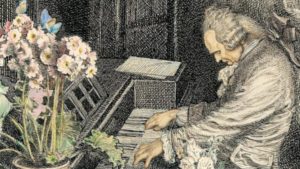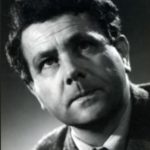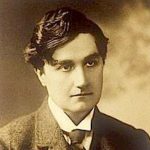St.Nicolas – Britten – December 7th 2019.
A Saturday evening concert in Sunderland Minster starting at 7.30 p.m., conducted by David Murray.
Soloist: Richard Pinkstone
Programme – St. Nicolas – Britten, Beatus Vir – Monteverdi, The Twelve Apostles – Britten, Simple Symphony – Britten.
Tickets £14.00 for Nave (£8 concessions for full-time students and on income related benefits) or £8.00 (Gallery – limited view). Accompanied under 16s free. Tickets are available from members of the Society, at the door, or on-line from http://www.wegottickets.com/BCS – who also have a direct link on the home page of this website. Doors open from 6.45 p.m. Apart from seats marked for Patrons there are no allocated seats.
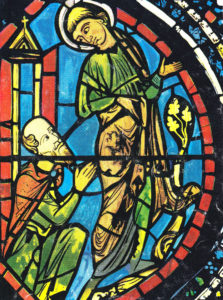 Saint Nicolas, Op. 42, is a cantata with music by Benjamin Britten on a text by Eric Crozier, completed in 1948. It covers the legendary life of Saint Nicholas, Bishop of Myra, Lycia, in a dramatic sequence of events. The composer wrote the work for the centenary of Lancing College in Sussex, with the resources of the institution in mind. It is scored for mixed choir, tenor soloist, four boys singers, strings, piano duet, organ and percussion. The only professionals required are the tenor soloist, a string quintet to lead the other strings, and the percussionists. Saint Nicolas is Britten’s first work for amateur musicians. The premiere was the opening concert of the first Aldeburgh Festival in June 1948, with Peter Pears as the soloist. St. Nicolas marks Britten’s first professional work intended primarily for performance by amateur musicians. While the piece was written for Lancing College, the first performance was actually, with the College’s permission, the opening concert of the first Aldeburgh Festival on 5 June 1948. Crozier’s libretto paints a dramatically bold portrait of the saint’s character, exaggerating the legends and glory that have accumulated over the centuries around Nicolas’s story. Britten’s music enhances the drama of Crozier’s text using striking contrasts in instrumentation, vocal style, and musical textures
Saint Nicolas, Op. 42, is a cantata with music by Benjamin Britten on a text by Eric Crozier, completed in 1948. It covers the legendary life of Saint Nicholas, Bishop of Myra, Lycia, in a dramatic sequence of events. The composer wrote the work for the centenary of Lancing College in Sussex, with the resources of the institution in mind. It is scored for mixed choir, tenor soloist, four boys singers, strings, piano duet, organ and percussion. The only professionals required are the tenor soloist, a string quintet to lead the other strings, and the percussionists. Saint Nicolas is Britten’s first work for amateur musicians. The premiere was the opening concert of the first Aldeburgh Festival in June 1948, with Peter Pears as the soloist. St. Nicolas marks Britten’s first professional work intended primarily for performance by amateur musicians. While the piece was written for Lancing College, the first performance was actually, with the College’s permission, the opening concert of the first Aldeburgh Festival on 5 June 1948. Crozier’s libretto paints a dramatically bold portrait of the saint’s character, exaggerating the legends and glory that have accumulated over the centuries around Nicolas’s story. Britten’s music enhances the drama of Crozier’s text using striking contrasts in instrumentation, vocal style, and musical textures
Beatus vir, “Blessed is the man …” in Latin, are the first words in the Vulgate Bible of both Psalm 1 and Psalm 112 In each case, the words are used to refer to frequent and significant uses of these psalms in art, although the two psalms are prominent in different fields, art in the case of Psalm 1 and music in the case of Psalm 112.
Psalm 112 has been included in various places in Western Christian liturgy, especially in the context of vespers, and has been rather unusually popular for musical settings, which are generally known by their opening words, “Beatus vir”. The Vulgate text actually begins “alleluia reversionis Aggei et Zacchariae beatus vir qui timet Dominum …”, translated as “Praise the Lord!/Blessed is the man who fears the Lord”, but settings normally ignore the first words, beginning at “Blessed is the man” (“beatus vir”).
Today probably the best known is Claudio Monteverdi’s setting of 1640, SV 268, from his Selva morale e spirituale, also known as the Vespers of 1640. This piece is often performed by itself, and has been described as “one of the most attractive and inspired settings of the Selva morale and one of the few sacred works of Monteverdi’s later years that has become widely known. The motet is a superb example of Monteverdi’s dramatic style. It contrasts pairs or small groups of voices with the weight of the full chorus, a technique known as stile concertato – one of the most characteristic features of baroque music. The piece is scored for six-part chorus and soloists, with organ, basso continuo and two obbligato violin parts.
The Twelve Apostles by Benjamin Britten was scored for Tenor solo, unison voices and piano. It was written for Peter Pears and the London Boy Singers, and first performed by them with the composer playing the piano on 16th June 1962 at Aldeburgh Parish Church as part of the 15th Aldeburgh Festival. The text is adapted from The Ten Commandments, printed in English Folk Songs from the Southern Appalachians. The tune is from the journal of the Folk Song Society, No. 21, November 1918.
The Simple Symphony, Op. 4, is a work for string orchestra or quartet by Benjamin Britten. It was written between December 1933 and February 1934 in Lowestoft, using bits of score that the composer had written for the piano as a young teenager, between 1923 and 1926. It was composed for string orchestra and received its first performance in 1934 at Stuart Hall in Norwich, with Britten conducting an amateur orchestra. The piece is dedicated to Audrey Alston (Mrs Lincolne Sutton), Britten’s viola teacher during his childhood. The piece is based on eight themes which Britten wrote during his childhood (two per movement) and for which he had a particular fondness. He completed his final draft of this piece at age twenty.




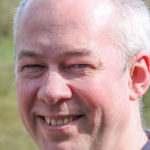
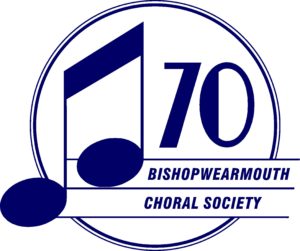 Tickets £14.00 for Nave (£8 concessions for full-time students and on income related benefits) or £8.00 (Gallery – limited view). Accompanied under 16s free. Tickets are available from members of the Society, at the door, or on-line from http://www.wegottickets.com/BCS – who also have a direct link via the Book Tickets tab of this website. Doors open from 6.45 p.m.
Tickets £14.00 for Nave (£8 concessions for full-time students and on income related benefits) or £8.00 (Gallery – limited view). Accompanied under 16s free. Tickets are available from members of the Society, at the door, or on-line from http://www.wegottickets.com/BCS – who also have a direct link via the Book Tickets tab of this website. Doors open from 6.45 p.m.